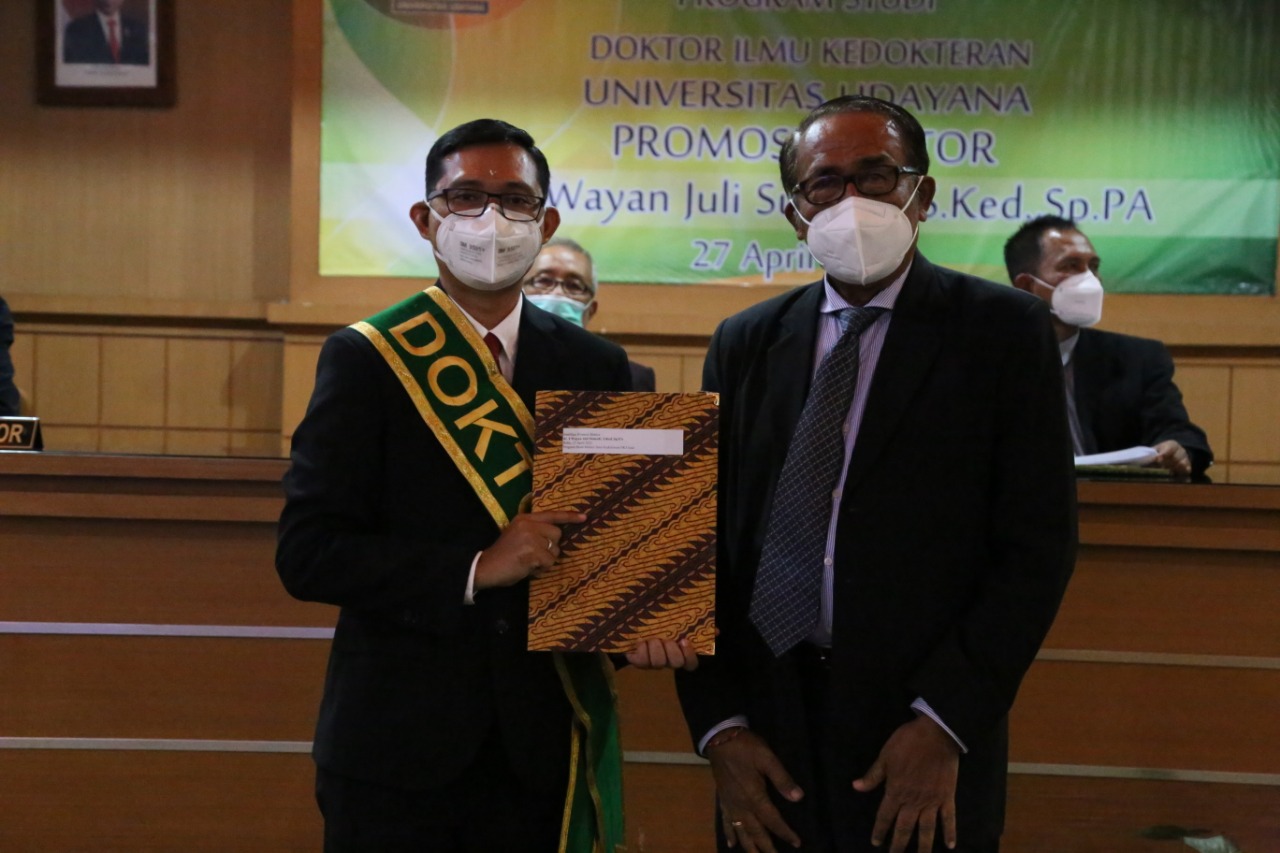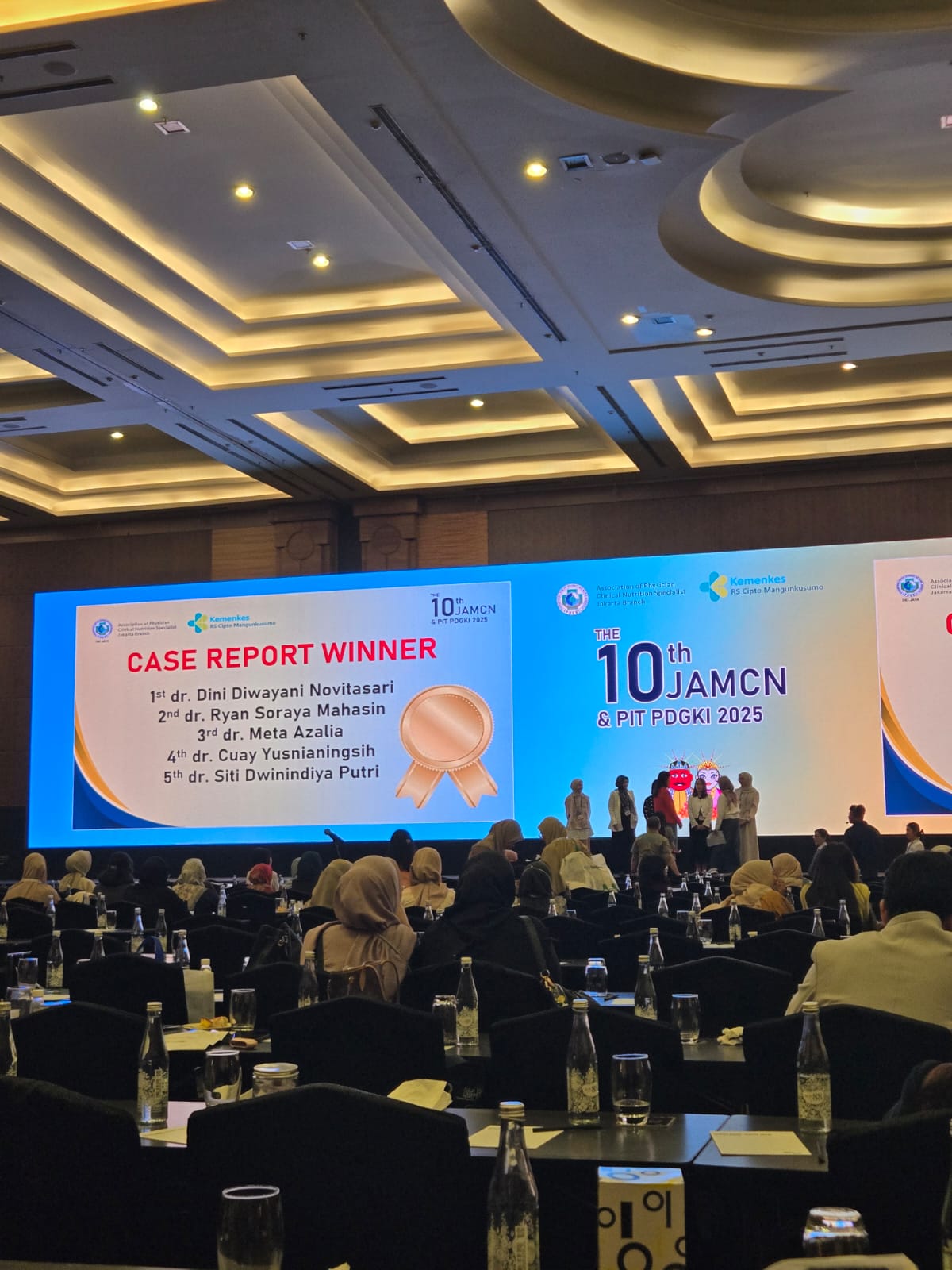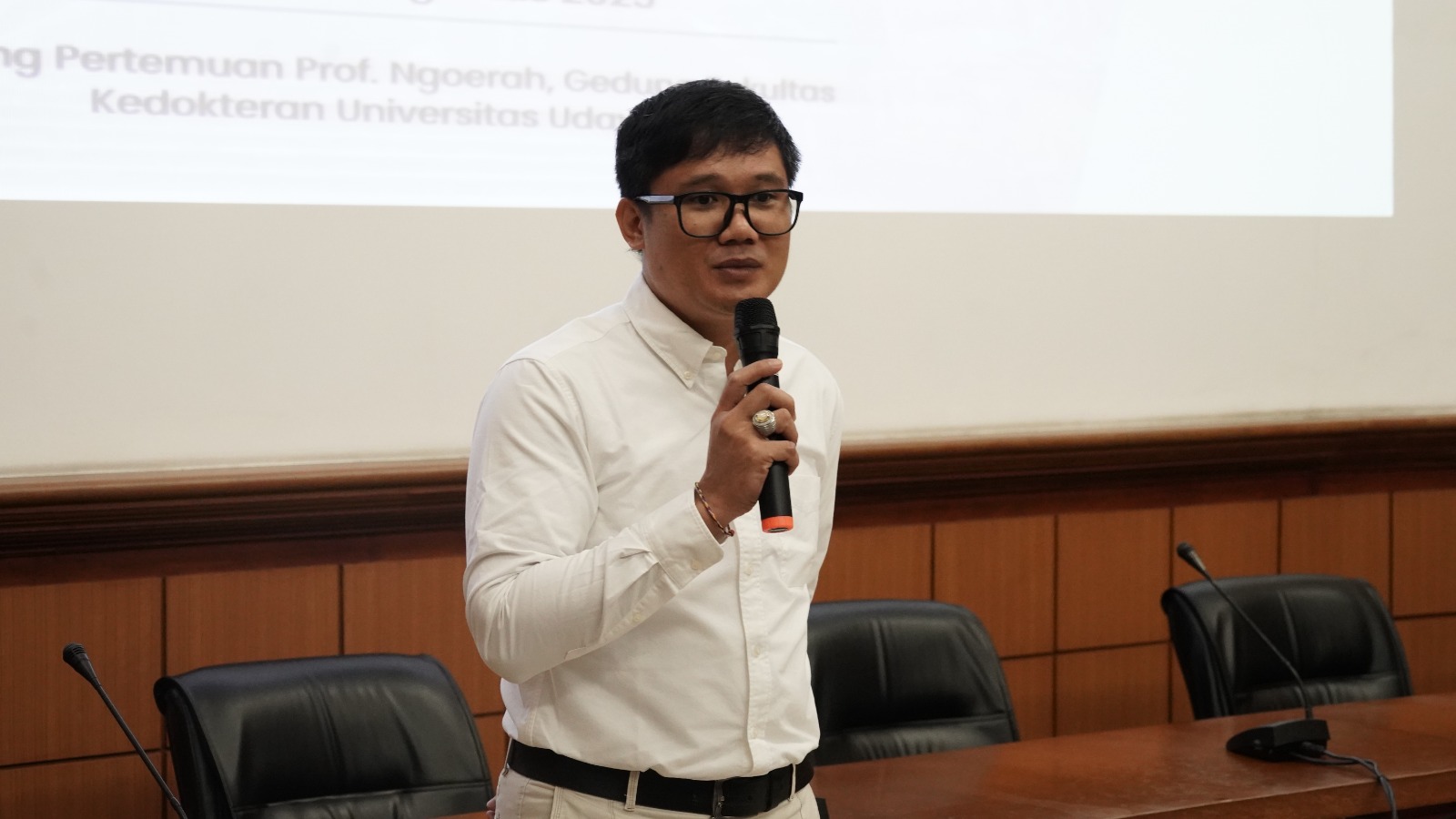Successfully Identifying the Determinants of Bladder Cancer Malignancy, Juli Sumadi Receives Doctoral Degree in Medical Sciences
Successfully Identifying the Determinants of Bladder Cancer Malignancy, Juli Sumadi Receives Doctoral Degree in Medical Sciences
Wednesday, 27 April 2022
Located in the Third Floor Postgraduate Meeting Room, the Doctoral Promotion exam was held offline with the promovendus candidate dr. I Wayan Juli Sumadi, S.Ked., Sp.PA(K) with the dissertation title "Expression of Neural Cadherin (N-Chaderin), Matrix Metalloproteinase-9 (MMP-9) and Programmed Death Ligand-1(PD-L1) which High as a Risk Factor for Invasion in Urothelial Bladder Carcinoma."
One of the cancers whose incidence is increasing is bladder cancer. Worldwide, bladder cancer is the seventh most common cancer, while in the United States it is the 5th most common cancer in men and in Indonesia the cases continue to increase. The presence of invasion of the muscularis propria smooth muscle is an important prognostic parameter and determines the primary management of bladder cancer. However, 50% of bladder carcinoma biopsy specimens are inadequate to determine the presence of muscle invasion, resulting in inappropriate therapeutic management. Therefore, it is necessary to develop predictive markers of muscle invasion in bladder carcinoma. The purpose of this study was to determine whether there were differences in the expression of N-cadherin, MMP-9 and PD-L1 in muscle-invasive (KKKIO) and non-muscle-invasion (KKKNIO) bladder carcinomas, and to determine whether the risk of muscle invasion was higher in muscle-invasion (KKKNIO) expression. High N-cadherin, MMP-9 and PD-L1 versus low expression in bladder urothelial carcinoma.
This study used a cross-sectional and nested unpaired case-control design. The results obtained from this study through analysis using the chi-square test, odd ratio and logistic regression analysis were that there were significant differences in the expression of N-cadherin, MMP-9 and PD-L1 in KKKIO and KKKNIO (each with a p value = 0 .01; p<0.001; p<0.001). In the case-control study, 29 KKKIO (cases) and 29 KKKNIO (controls) were obtained in the bivariate test with the chi-square test, high N-cadherin expression, high MMP-9, high PD-L1, and high degree of differentiation. high is associated with muscle invasion. However, in multivariate analysis with logistic regression, it was found that the independent risk factors for muscle invasion were high expression of MMP-9 (AOR=4.48, 95%CI=1.22-16.47, p=0.024), and PD -L1 (AOR=6.34, 95% CI=1.66-24.12, p=0.007). These results showed that bladder carcinomas with high MMP-9 expression had a 4.48 times risk of muscle invasion compared to those with low MMP-9 expression, and bladder carcinomas with high PD-L1 expression had a 6.34 times risk of muscle invasion compared to those with low MMP-9 expression. with low PD-L1 expression. The regression equation obtained from the logistic regression test can predict the presence of muscle invasion by 81.3%.
The novelty of this study is that the basement membrane degradation mechanism represented by high MMP-9 expression and immune evasion mechanism represented by high PD-L1 expression are independent risk factors for muscle invasion in bladder urothelial carcinoma; high expression of PD-L1 has a higher risk, which is 6.34 times for muscle invasion in bladder urothelial carcinoma compared to high expression of MMP-9, which is 4.48 times; The regression equation Y = -1,866 + 1,499 (MMP-9) + 1,846 (PD-L1 expression) can be used to determine the probability of muscle invasion in bladder urothelial carcinoma.
The implication of this study is that high expression of MMP-9 and PD-L1 is an independent risk factor for muscle invasion in bladder urothelial carcinoma. Meanwhile, high N-cadherin expression has not been proven as a risk factor. From this study it can be suggested that the high expression of MMP-9 and PD-L1 can be used to help predict the presence of muscle invasion in bladder urothelial carcinoma, especially in patients with biopsy results without detrusor smooth muscle tissue. Further research in the form of a multicenter study with a larger sample can be carried out to strengthen the results of this study, and further research is needed on the effect of downstream signaling after N-cadherin and the effect of cell–matrix cross-talks on the invasion mechanism in bladder urothelial carcinoma.
The exam was led directly by the Deputy Dean for General Affairs and Finance, FK Unud, Dr. dr. I Made Sudarmaja, M.Kes with a team of examiners:
1. Prof. Dr. dr. I Made Bakta, Sp.PD-KHOM (Promoter)
2. Prof. dr. I Gusti Alit Artha, M.Sc., Sp.PA(K)., MIAC (Copromotor I)
3. Prof. drh. I Nyoman Mantik Astawa, Ph.D (Copromotor II)
4. Prof. Dr. dr. I Nyoman Adiputra, M.OH., PFK
5. Prof. Dr. dr. I Made Jawi, M.Kes
6. Prof. dr. I Made Ady Wirawan, S.Ked., MPH., Ph.D
7. Dr. dr. Anak Agung Gde Oka, Sp.U (K)
8. Dr. dr. I Gusti Ayu Sri Mahendra Dewi, Sp.PA(K)
9. Dr. dr. Ni Putu Sriwidyani, Sp.PA
10. Dr. dr. Ida Ayu Ika Wahyuniari, S.Ked., M.Kes
While the academic invitations are:
1. Dr. dr. Gede Wirya Kusuma Duarsa, M.Kes., Sp.U(K)
2. Dr. dr. Dewa Ayu Agus Sri Laksemi, M.Sc
3. Dr. dr. Ni Wayan Winarti, S.Ked., Sp.PA
4. dr. I Wayan Sumardika, S.Ked., M.Med.Ed., Ph.D
5. Dr. dr. I Gusti Nyoman Darmaputra, Sp.KK
In this exam, Dr. dr. I Wayan Juli Sumadi, S.Ked., Sp.PA(K) was declared a graduate of the 344th Graduate Doctoral Program of Medical Sciences, Faculty of Medicine, Udayana University with the predicate VERY SATISFACTORY.








UDAYANA UNIVERSITY